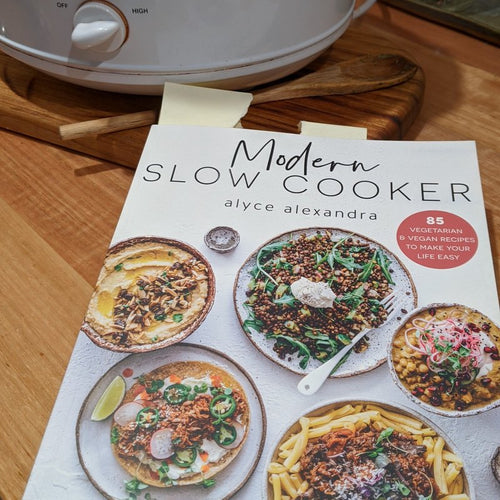Book review: Waste Not - make a big difference by throwing less away
I have been following Erin Rhoad's blog The Rogue Ginger for years, and I love her clever tips for reducing waste. I was pretty happy to find her book Waste Not at the airport, something to read on a long flight and enjoy while on holiday.
With beautiful photography showing the details (not just pretty, but informative!) and all the tips and tricks in one place, this book is a great kick start of anyone thinking about reducing waste. After the introduction, the book is split into three sections: Tools, Tips and Tricks.
In the Tools section it was really interesting to read about how and why Erin started reducing waste in the first place
Erin watched a documentary called The Clean Bin Project and then got involved in Plastic Free July. It seems very common to have an epiphany moment where you realise that you should reduce waste (or live simply etc), and its ironic to think that reading this book could be that moment for someone else.
(For example: Greening of Gavin writes about his epiphany here, I don't have such a defined moment, but I've listed some early influences here)
Erin's beautiful philosophy is "to the best you can with what you've got where you are". This is a great way to start without putting too much pressure on for people who are completely new to thinking about their waste. She also suggests to start with an "audit" by reviewing all your plastic waste and thinking about where it comes from and how you could reduce it. Reducing waste is a gradual process, it starts with awareness, then removing easy targets such as single use plastic and moving to more tricky and creative solutions.
(This type of audit is also part of permaculture principle: Apply self regulation)
The Tips section starts to get into the detail
Including how to manage waste in the kitchen (e.g. cooking with scraps), beauty and body care (including recipes) and even entertaining and events (which too be honest are in the advanced category, but Erin makes it seem easy to find ways to reduce waste). She even has a section about little people and furry friends - of particular interest to myself was the dog soap (if I ever wash our dogs I use my neem soap) and collecting dog poo (see my post about dog poo composting).
The final section on Tricks covers some more difficult topics. Minimising waste while travelling (often "too hard", but these tips will help!), and how to "act your vision" to make lasting change for the future. She also includes a directory of bulk food shops and other usual places to get supplies (limited to Australia, New Zealand and UK in the edition I read).
Overall, I enjoyed the practical advice
Everything in the book comes from Erin's personal experience, and you can put these strategies to work right away. The small steps will help someone completely new to the concept to get started without becoming overwhelmed.
The solutions are equal parts DIY and how to buy, so if you don't have time to make everything you can choose to buy, but if you can't afford to buy everything you can choose to make your own. The photography really is stunning and helps to illustrate the tools, tips and tricks.
Coming from a rural area, I know it can be difficult to find bulk food stores and some of the other tools or weird ingredients suggested. Erin is based in the city and may have underestimated how even a larger regional city in QLD may not have some of these resources, however I think there is now so much available online, this should no longer be an excuse not to do something. Our local council has not provided a recycling service for several years, and that made me thinking about how to reduce waste overall, rather than relying on recycling, so just because you are remote and can't do exact as Erin suggests, this is an opportunity to be creative and do what you can where you are.
When I finished the book I left it with a friend who has similar interests
I told her to pass it on to someone else who needs it. I think it is the perfect beginner manual, so if you don't know where to start and want to reduce waste, get this book. If you know what you're doing, but know someone else who just needs an epiphany moment, buy this book for them (or get it from the library).
Have you read it? What do you think? Any waste reduction tips to add?
You can read more of my posts about waste and plastic here
You can order through my Amazon affiliate link and I will get a small commission:
This is my Pinterest board of useful tips for Plastic Free July























Leave a comment